Keeping Humanity in Healthcare When Data Reigns
When I was wrapping up college way back last century, Bob Seger released one of my favorites among all his hits – a song called “Feel Like a Number.” If you don’t remember that one, here are the lyrics in part (if you do remember the song, please sing along as you read):
To workers, I’m just another drone
To Ma Bell, I’m just another phone
I’m just another statistic on a sheet
To teachers, I’m just another child
To IRS, I’m another file
I’m just another consensus on the street.
And I feel like a number
I feel like a number
I’m not a number
I’m not a number
Damn it, I’m a man, I said I’m a man.
Those words were penned more than 45 years ago … and the lament has only gotten worse. Healthcare can be especially guilty of making us feel like a number, or a set of data. It can seem like our insurance group number, our account number and our billing invoice number are the most important priorities to providers, can’t it?
Don’t get me wrong. My company, Transcend Strategy Group, highly values data. We rely on market data, audience survey data, outcomes data and other important numbers to guide vital decisions and recommendations based on real-world metrics.
Modern medicine is increasingly based on lots of data and evidence from the field. Health insurance payers are demanding more data to prove outcomes and measure the value of care. The emergence of artificial intelligence and machine learning are accelerating the application of data at warp speed.
So how can healthcare providers keep a keen sense of humanity for patients and families and prevent them from feeling like just a number?
In our latest podcast episode, I sat down with Tim Short (M.D., HMDC, FAAFP, FAAHPM, FNAP) for this critical discussion. I knew Dr. Short (I just call him “Tim”) would be a great choice for this topic. As a former client who is still my friend, our work with him allowed me to see his approach to communicating compassionately with patients and families during some of life’s most challenging times. I saw how he beautifully blended the science of medicine with the art of empathy to help his patients retain their humanity and dignity.
Please invest about 25 minutes to hear Tim’s advice. Meanwhile, consider these practical tips as reminders for keeping humanity in healthcare:
How to Lift Up People Above the Numbers
1. Start with listening.
Dr. Short says it well in the podcast: “I think we can assure that humanity stays anchored in this technology by listening to our patients and their families … by slowing down and being present in our interactions.” Of course, in today’s healthcare settings, this intent may be easier said than done. According to a recent article published by AMN Healthcare, physicians on average spend as little as 13 minutes with each patient, depending on their specialty. Many physicians and home healthcare workers have a quota of patients to see each day. Being on a high-speed treadmill makes it tempting to go in, tell patients what you think is best for them, administer or prescribe a treatment and move on. By contrast, I’ve seen Tim start conversations with patients with questions about them … even when he knows their prognosis is not good. “What is your understanding of your current condition?” he’d say. “What would you like to see happen in your life despite your illness?” Tim always would try to start from the patient’s point of view – and really listen to what they said. That’s the foundation for seeing each patient as the unique person they are and respecting their individuality.

2. Keep the conversation focused on the whole person.
Many hospice providers I’ve worked with say, “We treat the person, not the disease.” That’s a noble pursuit for healthcare professionals … but it may be more difficult to achieve with all the medical specialties and subspecialties that exist today. Specialists are trained to focus on the details of a particular disease. Treatments are becoming more and more specialized for specific disease states, down to the unique DNA of each patient. Yet if each provider could take the time to “zoom out” and see how the details are impacting the entire person, how much more humane would healthcare be? Sure, the clinical details matter. But how do those details affect the patient psychologically, emotionally and spiritually? What will they mean for the patient’s lifestyle? Understanding the human impact of illness and its treatments can help magnify empathy for each provider.
3. Translate data in down-to-earth language.
There’s no doubt a reliance on data is here to stay in medical science. But how do we make data that medical professionals are trained to understand become meaningful to patients? Dr. Short says, “What I found to be most helpful in assisting patients and families translate data and to navigate this information explosion is to get it out in front of them. And that’s one of the nice things about an EMR. You can pull it up, put it on the screen, and sit down together and look at it together. Even things like CAT scan findings, I found extremely helpful to be able to pull it up on my screen and show (patients) the image and show them and explain to them the radiologist’s interpretation of this image and put it into English … then put it into context. What does this mean and where do we go from here? What are our choices?” When my wife Paula was going through cancer treatment, her oncologist did a great job of explaining things. Dr. Mohammed would show us a treatment study, for example, and translate it into simple language: “This chemo regimen has been used to treat more than 10,000 patients with lymphoma similar to yours and 87 percent have gone into remission … so I fully believe this is the course of treatment we should use for you.” Such interpretations gave us clarity and confidence.

4. Help train new workers in the art of empathy.
The curricula for students studying to become doctors, nurses and other medical professionals typically focus on clinical matters in great detail. Most schools include very little, if any, subject matter on the art of listening, communicating with patients and having difficult conversations. As an associate professor of palliative medicine at the University of Virginia, Tim Short was the director of a course called the “Heart of Medicine” for first year medical students, instructing them on how to thoughtfully apply these important skills. In his roles as chief medical officer and medical director of various hospice and palliative care organizations, Tim has consistently mentored his staff members in how to tap into and maintain empathy for patients and families. Many other medical professionals recognize this need as well. In fact, two physicians at Gundersen Health System in LaCrosse, Wisconsin, developed “The Empathy Project.” The result was a role-playing card game with “25 statements representing a wide variety of expressed emotions, including grief, worry, fear, anger, frustrations and guilt.” Gundersen uses the card game with medical students, residents and even their younger attending physicians to give practical advice and experience in communicating about these difficult topics.
As you can see, keeping humanity in healthcare has a lot to do with how to communicate empathy and expressing it from a perspective that matters to patients and families. Which, by the way, can have a big impact on improving CAHP scores, too.
Does your organization need help in achieving this goal? Transcend has surveyed more than 30,000 family healthcare decision makers about what is important to them regarding care for a seriously ill loved one. And we have decades of experience in communicating with patients in families using language that resonates with them. If you would like to begin a conversation on this crucial topic, email me anytime at stan@transcend-strategy.com. I would give you my phone contact information … but I’m not a number. Damn it, I’m a man.












